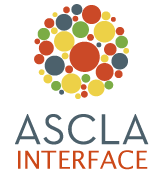Press Release
New York, NY – December 17, 2009 – A report released from Ithaka S+R, Documents for a Digital Democracy: A Model for the Federal Depository Library Program in the 21st Century , examines the essential role of the Federal Library Depository Program (FDLP) in distributing, providing access to and preserving government documents and how the transition of government information from print to digital impacts the Program’s long-term approach and sustainability. Commissioned by the Association of Research Libraries (ARL) and the Chief Officers of State Library Agencies (COSLA), the changes articulated in the report are urgently needed as FDLP and other libraries strive to ensure long-term, no-fee public access to government information.
“The FDLP was created when government information was printed and when members of the general public needed local access to documents. Times have changed and without a system-wide transformation of current practices, the ability to effectively distribute, provide access to and preserve this essential information is in jeopardy,” said Brinley Franklin, Vice Provost, University of Connecticut Libraries and President of ARL. “An efficient, up-to-date, coordinated program to ensure preservation and access, for both print and digital materials, is needed so the Program can continue to provide the permanent, no-fee public access that is so vital to the public and public understanding of our government.”
Ithaka S+R interviewed nearly 90 individuals, including librarians from 40 institutions, in order to understand a broad range of perspectives on the pressures facing the FDLP. “We found that the Federal Depository Library Program faces a range of challenges,” stated Roger C. Schonfeld, co-author and Manager of Research for Ithaka S+R. “Users increasingly prefer to access government information digitally, and participating libraries are feeling pressure to alter their approaches as incentives to continue to preserve print information decline and they struggle with how best to serve changing user needs. We hope this report helps to catalyze further action to create a better system for the future.”
The report offers a new vision for a system-wide framework that emphasizes the digitization of historical collections to enable dramatically expanded access to this material, greater flexibility in collection management, improved coordination of new government publications by the Government Printing Office (GPO) to ensure that access and preservation needs are adequately addressed, and an expanded role for librarians that emphasizes helping the public to locate, access, and use the wide range of information available. The report stresses that preservation and information integrity, along with advanced access services, should be achieved both through formalized partnerships between the GPO and select libraries and archives and through decentralized approaches.
The importance of transforming the FDLP for the public should not be underestimated. "Immediately following the signing of our Declaration of Independence, horses galloped to the thirteen colonies with typeset copies of the document detailing the birth of a new nation safe in saddlebags. Taxpayers of the 21st century deserve the same no-fee access to government information using the best technology available today and for tomorrow,” commented GladysAnn Wells, Director and State Librarian, Arizona State Library, Archives and Public Records and COSLA Past President. “This Report sets the stage, makes solid recommendations, and empowers the work that must be done."
